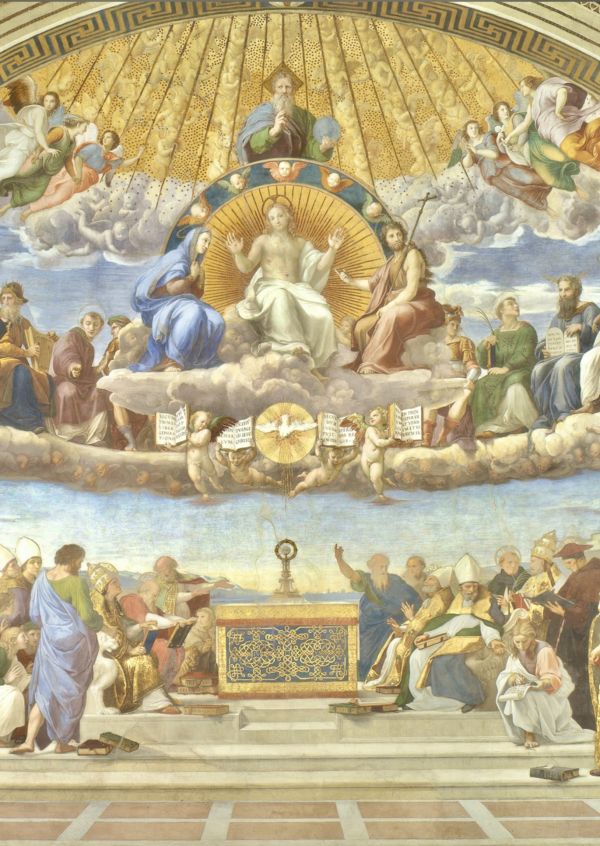(Jn 6:44-51)
God does not attract with peremptory force or blackmail, but with invitation (v.44).
And sincere belief is activated by an initial testimony in oneself (v.44).
The Father does not let us become chronic. He acts within each one to reshape convictions, adhesions, projects.
Everything works in the direction of ourselves, not in an unnatural mode.
He acts present in each person in a way that is spontaneous and at the same time akin to individuating principles; more respectful of inclinations, real characteristics, energies.
This teaching (v.45) is internal: impersonated by Christ in the Word that does not distort anything - implicit in his Person and story.
Thus the gift of life is linked to assimilating and becoming One with that Food.
Bread that does not damage people, but convinces, supports, ferments and orients - in an unrepeatable way; each one by Name.
That “Manducated” kills conformity and extinction.
It possesses the virtue of reknitting the threads that distinguish the character of Person, the innate quality, vocational essence, propulsive capacity [Life of the Eternal].
The bread of the earth preserves life but does not update, does not ceaselessly regenerate us, nor does it open a way through death.
The Bread that reactualizes the ultimate gift of the Son, nourishes the existence of an indestructible quality that does not fade, because it is divine Gold of our spring being.
The prophets had announced that in the last times one would not know God by hearsay but by personal experience.
After the failure of the kings and the priestly class, women and men would be taught directly by the Lord.
The expression «Bread came down from Heaven» designates Jesus himself in relationship with the Father and [precisely] in his mission to bring Wisdom, and exuberant Life, to people.
Divine, limitless Life, which immediately pours into each one - so excluding the uncertainties or interpretations veiled by the shortcomings, by the “visual” defects of the mediators, which conversely would lead to collapse.
Presence that in the time of complexity also kindles in us the desire to be instructed by God-in-Person, guided by the inner Friend, and walked by regenerating insights, in his Spirit.
He inclines us to pay no heed to a nature that seeks and «murmurs» only for the banal "taste" of sustenance: «manna in the desert» (v.49); that is, interest, reputation, titles, trivialitiy of satisfactions.
«I am the Bread, the Living, the one who came down from heaven. If anyone eats from this Bread, he shall live the Life of the Eternal, and the bread that I shall give is my flesh for the full Life of the world» (v. 51).
The Spirit that internalises and actualises is the main Subject of even domestic, daily history of salvation. Making himself ours.
By evangelizing us and growing in Friendship [we «instructed by God» (v.45)] the nourishing action of the Master introduces our fermented flesh into the new Life.
The Son beside us changes our 'taste' and familiarises of Himself the same 'Nature'.
In this way, we, too, assimilated and identified with the Bread-Person made intimate, reveal Totality in act, living Eternity, the original Source.
[Thursday 3rd wk. in Easter, May 8, 2025]












